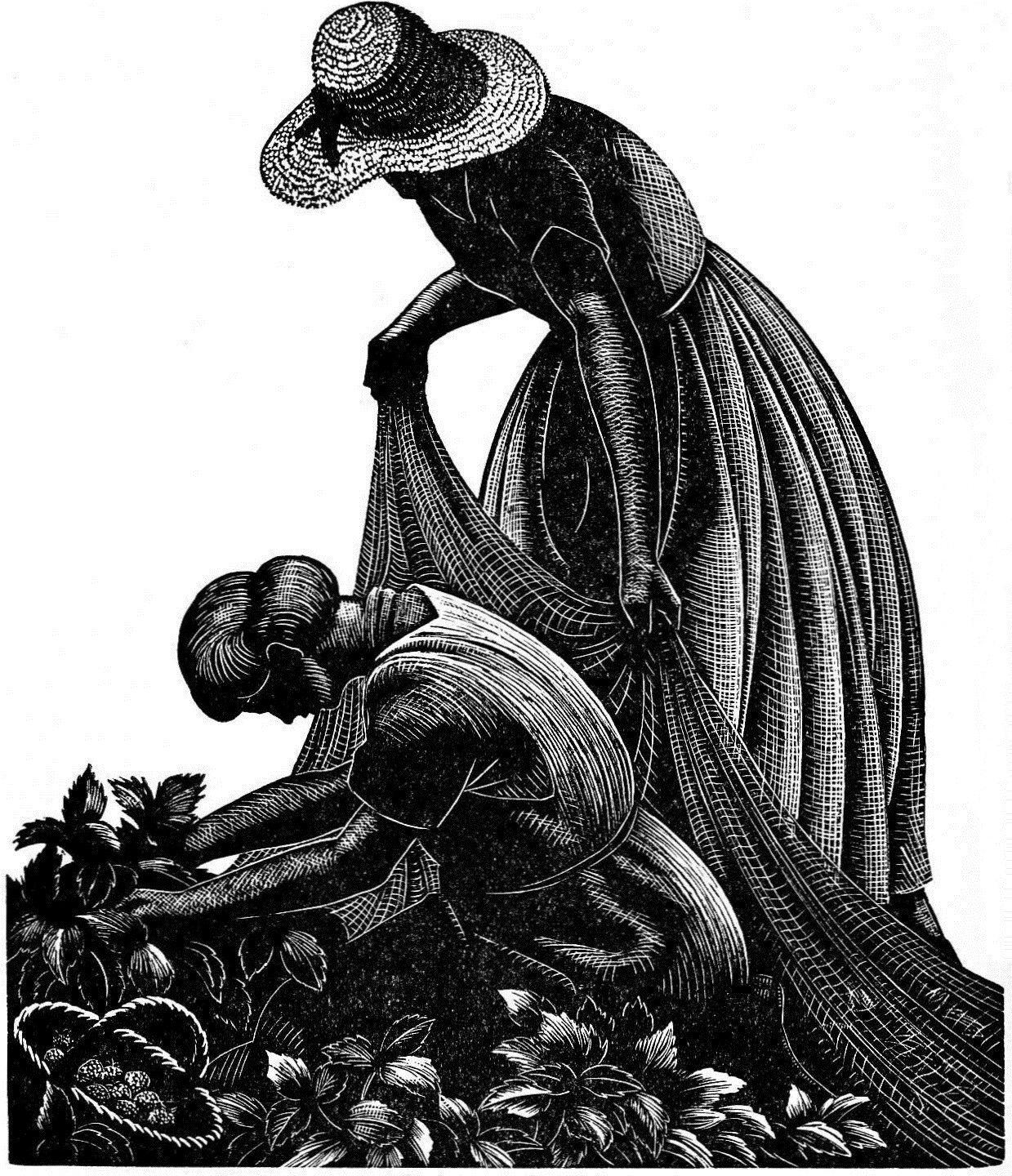The Inaugural Classical Mind Newsletter
Dr. Junius Johnson on the Relationship between Imagination and Reason, Social Media: Good or Bad?, Bonsai Trees, David Bentley Hart and Sally Vickers, "Strawberry Picking", and John Malkovich
Welcome to the first edition of the Classical Mind Newsletter for subscribers. This inaugural issue is available to all, but moving forward, only those who support us will be able to read and participate in the conversation.
Let’s dive right in!
Dr. Junius Johnson on the Role of Fiction in the Intellectual Life and the Relationship between Imagination and Reason
Dr. Junius Johnson is an independent scholar and executive director of Junius Johnson Academics where he offers innovative classes based on cutting-edge scholarship. He is wonderfully thoughtful and I hope you enjoy our brief conversation in which we discuss AG Sertillanges’ dislike of novels, the relationship between imagination and reason, and some advice for those pursuing the intellectual life.
Social Media: Good or Bad?
In The Atlantic, Ian Bogost tracks the steady downward spiral of social media companies and makes the argument that “Social media was never a natural way to work, play, and socialize, though it did become second nature.” The current downfalls of the houses of Zuckerberg and Musk are creating an opportunity for us to leave social media behind as an unfortunate artifact. The negative consequences of social media are (1) it incentivizes incendiary content that perpetuates unhealthy forms of partisanship; (2) it has created a faux-celebrity culture that “gave many people the impression that they deserve an audience” while simultaneously causing the consumer to believe they are an entitled to an audience with the accounts they follow. Escaping the cave of social media will be difficult, but Bogost hopes to see a shift toward downscaling in which people utilize online platforms less and restore more natural forms of relationships. “To win the soul of social life, we must learn to muzzle it again, across the globe among billions of people. To speak less, to fewer people and less often.”
The “sed contra” is offered by Kathleen Stock in her piece “The Virtues of Twitter” over at Unherd. She argues: “Twitter has long offered its users an unparalleled opportunity to become a stronger, more resilient, more psychologically acute person. I think of the platform as a testing ground for the soul’s development; a crucible in which self-aware types can purge themselves of their baser metals.”
Perhaps we can all agree that social media is a kind of purgatory, but who is more correct: Bogost’s pessimistic vision that sees little good in social media or Stock’s hopeful vision for positive moral development via internet engagement? Is social media redeemable? What do you think the future of social media should look like? What adjustments do you hope we make?
Bonsai Trees, the Artist’s Eye, and Asceticism
“The Beautiful, Brutal World of Bonsai” by Robert Moore tells the story of American Ryan Neil as he studied under bonsai master Masahiko Kimura. What intrigues me about the article is not the skills these men have which put me to shame (I’ve tried two or three times to grow bonsai trees in my home office with no success), but the artistic eye that allows them to pierce through a thing as it is to see what it can be. “A scruffy, shapeless plant had become a cantilevered sculpture. As Neil saw it, Kimura had given the tree not just a new shape but a soul.”
Also of interest is that there are some parallels between Kimura’s underlying philosophy and that of A.G. Sertillanges in The Intellectual Life (if you haven’t be sure to listen to our episode on this!). When Kimura accepted Neil as a student, he explained, “Training is of course about acquiring skills, but total apprehension of the spiritual aspect is of the utmost importance. It may be strict, but, if you dedicate yourself fully, it will most certainly be rewarding.” This advice mirrors much of what Sertillanges envisions about the pursuit of intellectual virtue, namely that it requires all of who we are and requires an ascetic attitude.
Philosopher and Theologian David Bentley Hart in Conversation with Author Sally Vickers
This is an excellent conversation. Unfortunately, I’ve never read anything by Sally Vickers, though I will be adding her to my reading list as a result of this conversation. I enjoyed their dialogue quite a bit, and I think our Substack community will too.
“Strawberry Picking” by Claire Leighton (1898-1989)
John Malkovich in Iconic Photography
We all love the visual arts, right? We all love John Malkovich, right? Why not put the two together and see what happens?




I love this kind of newsletter keep it up!
{Alrighty, I’ve finally corralled my thoughts on the first portion of the newsletter and am dropping them here. I’m excited to see what others think on the question of social media.}
I admit, these question sent me into a bit of a rabbit’s hole, trying to make sure I understand what’s being said/asked, finding loop holes in my own thoughts, finding (and raging at) my own biases, and then questioning whether or not I’m capable of understanding the question apart from my personal experience with words like “redeem”. It’s been a little bit of an existential tumble. And I’m pretty sure I lost sight of the original conversation somewhere along the lines, hopefully not too much.
I suppose I am inclined to agree with the idea of positive moral development via engagement. I think Bogost’s assessment of the dangers and damages of social media is accurate, although not absolute. But I guess, ultimately, I don’t think social media needs “redeemed” I think it is what it always was: a platform, a format for human engagement.
I’ve gone round and round over whether one can redeem a morally neutral thing, but ultimately, one can “redeem” a plot of land, so I suppose that social media can be. But then we have to identify which definition of redemption we are working with. Do we mean to compensate? To repossess? To atone for? Because I don’t see how any of these can be broadly applied to social media. I cannot repossess what was never mine. I cannot compensate for anyone else’s behavior. I cannot atone for anyone’s actions other than my own. And frankly, my ability to atone for my own actions is debatable.
If we say that social media should be left behind “as an unfortunate artifact”, then I argue we’ve missed the whole point of linear progression. To build on the foundation laid rather than cling to the it and refuse any further innovation. With innovation comes the responsibility to continually develop the application of our moral code and social engagement. I think it’s not a question of redemption, but a call to responsibility. And part of that means finding the right place for social media within the larger context of human interactions.
Which, I guess, leads me back to Stock’s vision for moral development via engagement.
I’m still pondering what the future “should” look like and any adjustments I hope we make.